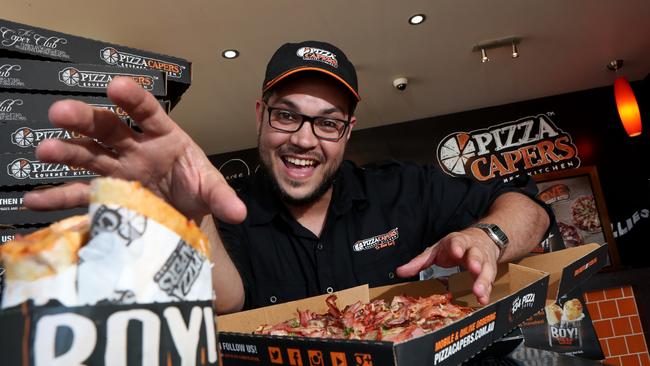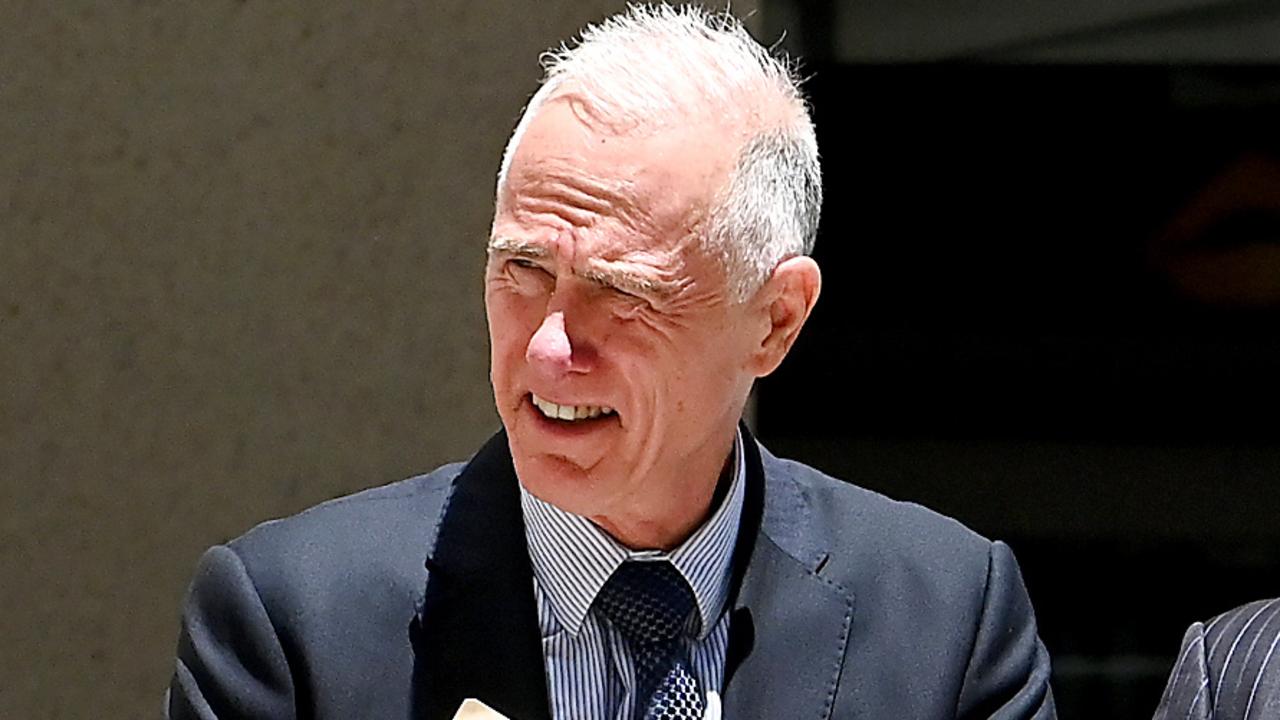Gold Coast franchising giant Retail Food Group leaves sour taste for some
The Gold Coast owner of Donut King and Brumby’s Bakery had a tumultuous end to last year. What happened and what does the future hold for this giant of the food franchising world?
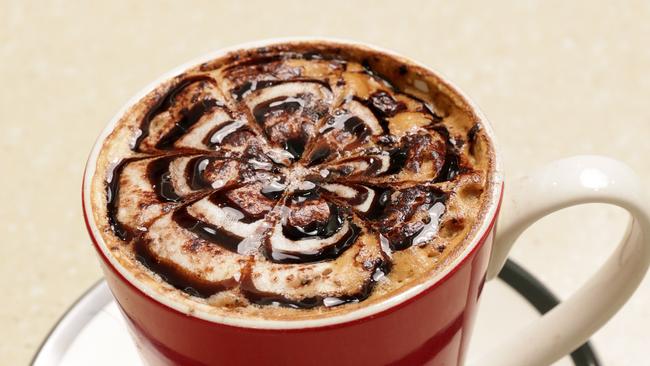
Business
Don't miss out on the headlines from Business. Followed categories will be added to My News.
Retail Food Group was a sharemarket darling thanks to high dividends and rapid expansion. But that all changed last month after allegations of dud deals for franchisees. Alister Thomson looks at what happened
HISTORY
RFG listed on the ASX in 2006 but its history goes back to the 1970s. Accountant Murray d’Almeida, who serves as chairman of Southport-based BPS Technology, founded what is now Retail Food Group in the 1970s with his brothers.
The company initially had Donut King but expanded to incorporate other brands such as BB’s Coffee.
Later, Mr d’Almeida changed the name to Retail Food Group and stepped away in 1999 after returning from a short stint in the UK, where he worked on expanding the firm’s international presence.

By the late 1990s Tony Alford had taken the reins of the company.
Mr Alford has a colourful history. He moved from Tasmania to Southport in the 1980s and set up an accounting practice with Paul Ebbage, who has since passed away.
After joining RFG in 1994 as an external adviser, Mr Alford was involved in a legal dispute over the management of funds from the estate of INXS star Michael Hutchence.

The case related to a riverfront Isle of Capri home that Hutchence told friends belonged to him. The La Spezia Court house was bought for $1 million in 1995 through company Sin-Can-Can, whose directors were Mr Alford and Gloria Diamond. The stoush was resolved in 2001. Meanwhile, Mr Alford continued his rise at RFG, becoming chief executive (a role also later held by his brother Gary Alford) and a major shareholder. The company listed in 2006 with its IPO heavily oversubscribed. Mr Alford, managing director at the time, reduced his stake from 24.7 million to 17.5 million shares with RFG worth $65 million on paper.
“The retail food sector is pregnant with opportunities and is ripe for an industry consolidator,’’ he told the Bulletin at the end of the first day of trading.
“We’ve been contacted by four potential vendors, one in Queensland and a mix of competitors and complementary operations, and we will pursue those with vigour.’’
Mr Alford wasn’t exaggerating. RFG started as a listed company with 265 Donut King outlets and 67 BB’s cafe stores. The following year it took over the Brumby’s Bakery and Michel’s Patisserie brands. In 2009 it launched internationally and in 2014 was admitted to the ASX200, which includes the country’s biggest listed companies.
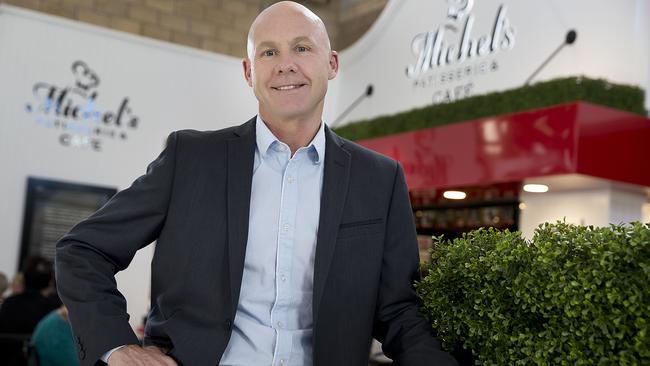
In December 2015, it marked a major milestone when it opened a Michel’s Patisserie & Cafe outlet in Maitland, NSW. The shop was outlet number 2500 and RFG had, by this point, more than 10 brands including Pizza Capers, Crust Pizza and Gloria Jean’s Coffees.
Mr Alford stood down as managing director in July of the following year to make way for current chief Andre Nell. Shareholders had plenty to be thankful for. The final dividend of FY16, of 27.5¢ per share, was RFG’s 20th consecutive biannual dividend increase.
CRISIS
There were warning signs in June of 2017. The shareprice slumped 11 per cent in one day after UBS released a note to investors concerning new accounting standards. New International Financial Reporting Standards meant retailers such as RFG would have to recognise, as a balance sheet liability, rental payments over the entire term of a lease.
The changes were said to add $105 million in lease debt and investors responded by hammering the stock.
That was followed several weeks later by RFG downgrading its full-year earnings forecast. It said that while domestic franchises were trading in line with the previous financial year, growth had been offset by a decline for Michel’s Patisserie.
If shareholders were concerned, they didn’t show it at the company’s annual meeting five months later. All resolutions were passed and a representative from the Australian Shareholders Association praised the board. Mr Nell did warn of a challenging domestic retail market weighing on the performance of local franchises. And chairman Colin Archer used the forum to criticise short-sellers, with RFG being one of the most shorted stocks on the ASX.
“The relentless activity of short-sellers is undermining perceptions regarding the group’s credentials, performance and future prospects,” he told the meeting.
RFG EMBRACES AMAZON AND SOCIAL MEDIA
SUBSCRIBE FOR LESS THAN 50c A DAY
However, it wasn’t the behaviour of short-sellers, or the difficult retail environment, foremost in the minds of RFG executives on December 9. Rather it was the first of a series of articles published in Fairfax Media, which claimed to expose “the brutal reality of Australia’s franchise king”. It was claimed franchisees had lost their homes, marriages had been ruined, and retirement savings flushed down the drain. Systematic wage fraud, the use of sham employment contracts, and underpayment of foreign workers hired on holiday visas was also alleged.
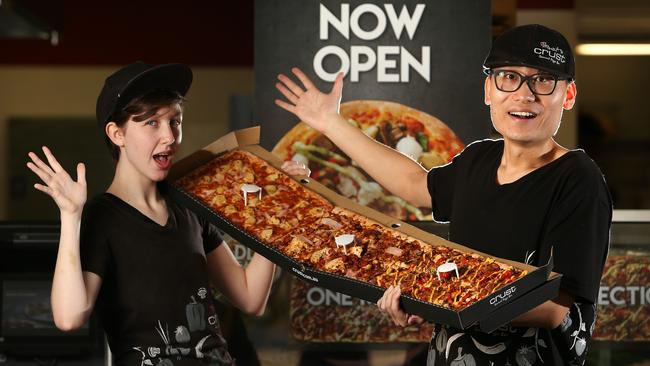
The founder of Brumby’s Bakery, Michael Sherlock, who sold the franchise network to RFG for $46 million in 2007, told the Bulletin that RFG’s relationship with its franchisees needed to change.
“Franchisees, if they work hard and follow the system, should be able to make a good return on their investment - not just a wage,” he said.
“Then at the end of the time it should be a nest egg for themselves or to pass on to someone else.”
As a result of what was called excessive franchise fees, vast numbers of RFG franchise stores had closed or were for sale. The Bulletin reported on Robert Verni’s case last month. Mr Verni had run a Michel’s Patisserie outlet with his family at Robina Town Centre for more than eight years. But in July last year he shut up shop, claiming he was unable to continue trading due to high rent, fewer customers and refurbishments totalling more than $300,000.
A search of seekbusiness.com.au shows more than 200 for sale, including Michel’s Patisserie, Pizza Capers, Donut King and Brumby’s Bakery outlets across Australia.
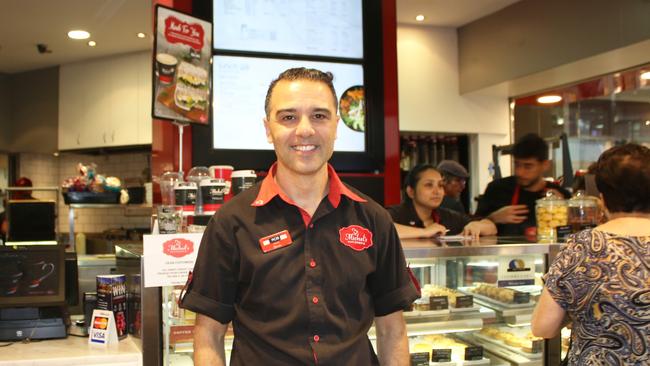
The first article came out on December 9 and had a devastating impact on RFG’s shareprice when the market reopened. Its shareprice opened at $3.79 and closed down more than 26 per cent at $3.25 following the revelations. Market capitalisation dropped more than $200 million from Friday’s figure of $804.08 million.
RESPONSE:
RFG was slow to respond to the allegations. It was Wednesday before the company got around to issuing a two-page response to the ASX.
“RFG does not consider this coverage accurately reflects the strong platform for growth it has established to assure a sustainable long-term future for its business and those of its franchisees,” the company said. “RFG has made considerable disclosure in relation to its financial performance, business operations, prospects and trading conditions in recent months.”
RFG said franchisees had a high level of support, including a dedicated sales and performance team to work alongside franchisees and a franchisee care centre to help them access support services and resources.
It also said its business-wide review, launched in June and supported by Deloitte, was focused on driving “improved franchisee profitability”. It rejected the claim that there was systematic wage fraud at RFG.
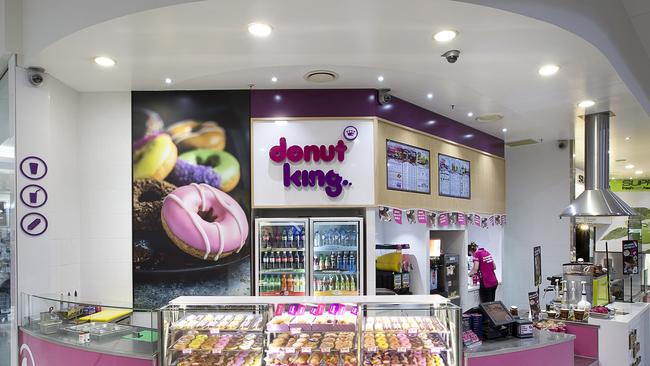
Five days later it issued another release in response to further media coverage.
“RFG has no evidence of any widespread franchisee noncompliance with employee entitlement payments. Since Fairfax Media published its initial article, RFG has received just one telephone inquiry through its support hotline from an employee, which it is investigating.”
It launched a marketing campaign, including newspaper advertisements, to portray the company in a positive light. These advertisements featured profiles of successful franchisees from a number of brands.
More bad news came on December 19, when it issued revised guidance of $22 million net profit for 1H18. Last week, it revised that guidance for the second time, but only saying that it would be “less than” the $22 million previously forecast.
FUTURE:
RFG has long ceased to be an Australian franchise operation. Indeed, the domestic franchise operation is just one part of its business. As well as franchisees, it also derives revenue from coffee roasting and its commercial food division.
So while the reputation of the company has undoubtedly suffered, investors can still find plenty to like about the operation. One suggestion was RFG has just too many brands, and they feed off each other.
However, RFG has not indicated plans to sell any to concentrate on the more successful brands. Its focus is increasingly on overseas expansion. Last week, it reported plans for a massive push into the UK market after selling the master franchise rights for Donut King and Crust. The company plans to open 250 Crust Gourmet Pizza Bars and 140 Donut King outlets during the next decade.

That is a win for the company but there are plenty of potential problems on the horizon too. One is a class-action lawsuit.
Last month Bannister Law said it was investigating whether RFG contravened provisions of the Corporations Act in connection with its stated profits guidance during the first half of FY18. It is asking for shareholders who believe they have suffered as a result of RFG’s conduct to come forward.
Mr Sherlock has also called for a Senate inquiry into the franchise system. Regardless, 2018 is shaping up to be a tough year for retailers with Amazon’s arrival. Many franchisees continue to be listed for sale and RFG’s stock remains a target for short-sellers. But RFG has no plans to leave the Gold Coast. It is consolidating its operations at the Bulletin’s old headquarters off Southport-Nerang Rd.
Its bankers, National Australia Bank and Westpac Bank, have recommitted to funding the company. Whether RFG can return to its heyday, when it was continually acquiring brands, and recording huge profits, remains unknown. What is certain is it will not be a boring year for the food franchisor.
